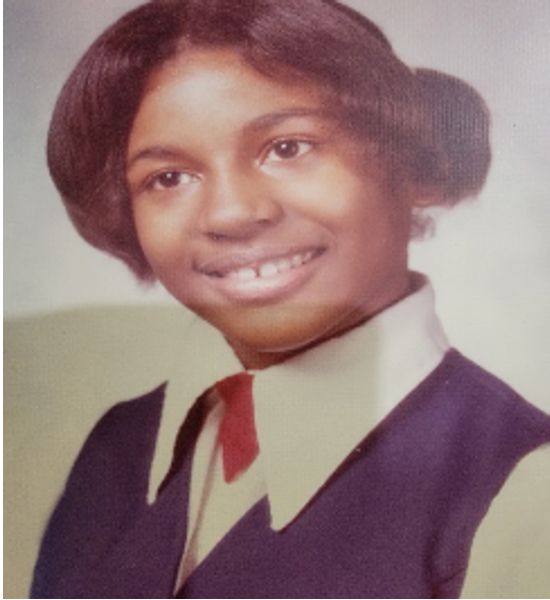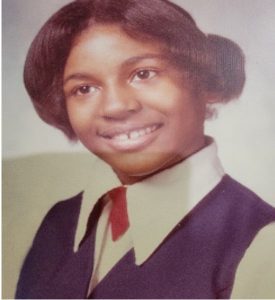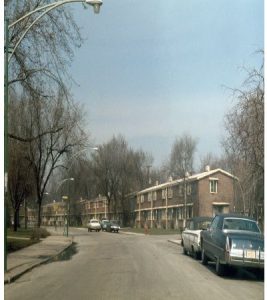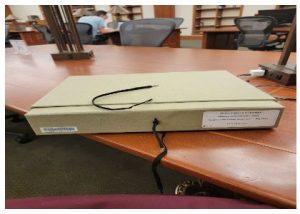
My name is Karyn L. Hixson – originally from Chicago, IL., my educational journey has taken place in several states such as Illinois, Texas, Nevada, and Nebraska. It has culminated in achieving a PhD in 20th Century American Literature from the University of Texas at San Antonio.
AWARE OF DISCRIMINATION:
Let us begin at the beginning – It is important to understand where activism starts. For me it commenced on the south side of Chicago. I grew up in an area called Princeton Park. There I was exposed to the realities of African American life in the United States. In a time when there was a mix of progress and challenges for African Americans, there were frustrations concerning economic conditions that did not improve despite civil rights advancements. The assassinations of Malcolm X and Martin Luther King evidenced the continued racial discord in the US. The Black Power movement with its focus on racial pride, economic empowerment, and the creation of political and cultural institutions was still not enough to bring a sense of equity to the African American community. As I attended graduate school the questions of where and when my passion for activism kept entering my train of thought. Then I remembered an experience I had as a child. As a student at Resurrection Lutheran School, I was aware of discrimination. I did not know the term, but I saw how people were treated unfairly. Knowing it was wrong; my passion was to do something. I did not know what I could do but I had a desire to act. Then, the opportunity came while I was in elementary school. In the third grade and our school was preparing for the end of the year performance where our parents would come and see the different classes present a song, dance, or other type of presentation. My class focused on the alphabet. Each student had a large letter on a square piece of cardboard. There are only twenty-six letters in the English alphabet and there were thirty-two students in our class. While standing in line I turned around to see all the students standing proud with their letters and I noticed the students in the back of the line with no letters. The students in the back of the line were the children that were the outcasts in our classroom community. They either had some type of physical or mental disability, and it was obvious that their families were economically disadvantaged. The students in the back of the line did not have the pretty lace socks, new dresses and suits, and big colorful bows in their hair like the rest of us. No, they were the ones who got teased because they were different, parents did not have the money to buy new things, and most had disabilities. Even the girl with a peanut allergy was sent to the end of the line. As a seven-year-old, I knew nothing about diversity or inclusivity, but I knew something was not right. I took my letter and gave it back to the teacher. Mrs. Jones replied, “Karyn, you don’t want a letter.” I said, “No!” handed her the letter and marched to the end of the line with the others. My passion for activism was fueled and I have been going full throttle ever since. I had the desire to do something, and I did.
Jumping forward, my dissertation will bring together a lifetime of activism that consists of promoting social, political, economic, and environmental reform with the desire to make a change, if only a small one, in society. My efforts are concentrated on literature. That is where my talent exists. I took my love of literature and combined it with the ambition of Octavia E. Butler, the author on which I focused my dissertation.
Octavia E. Butler’s work is foundational in the explication of African American women living in a society where they are at a disadvantage. A critical focus will be placed on Black feminist thought, critical race theory, semantics, and anti-Blackness aligning it with Black liberty and humanity to form a theoretical framework that will exhibit what I call the three C’s: communication, community, and change. The three C’s are the analytics I developed from Butler’s archive. I had the pleasure of doing primary research on Octavia E Butler at the Huntington Library, Art Museum, and Botanical Gardens, located in San Marino California. Primary research is a very crucial element in gathering research for my dissertation. It provided me with information to conduct an original study of Octavia E. Butler. The Huntington has all of Octavia E Butler’s materials over 348 boxes, which include her diaries, drafts of her novels, journals, notes, note cards, notebooks, calendars, grocery lists and even her old Metro bus tickets. It is like being an eyewitness to her writing, habits, and thoughts. My experience at Huntington was similar to an archeological dig. You can find out a lot about an author when visiting the reading rooms at the Huntington.
While uncovering information in Butler’s archive the 3C’s were noted in many of the folders and documents I used to analyze four novels: Mind of my Mind, The Parable of the Sower, The Parables of the Talents, and Kindred. I did not produce the analytics. Butler’s own notes informed me of their importance. Communication she noted as a shared standpoint for marginalized people due to silencing suffered over the years. In her novels she highlights how laws were enacted to keep communication non existent within the AA community– communication has been and still is a divide where separation between class alienates. Community was highly visible in the Parable series where Butler created a dystopian world of chaos in which community was necessary to bring back stability in society to fend off harsh and frightening realities of the world which had become cruel and lawless. A community itself, as Butler’s novel concludes, should provide security, trust, and honesty. Lastly, change considers future possibilities and through Afrofuturism Butler’s work pioneers an artistic and intellectual movement that imagines Black people surviving into the future and shaping new cultures. In my exploration of Butler’s political stance through her literature, I showed how Butler used these concepts to assist her readers in understanding the conflicts under which she places her protagonists.
In terms of modern literature and the genre of science fiction, African American writer and visionary Octavia E. Butler gives agency and identity to those who otherwise would have none. She represents the edge between the colonized and the colonizer and those who are denied rights vs. those who are empowered and privileged. In her fiction — with her marginalized voice, Butler sought to include those who looked like her in the genre of science fiction. She makes a point to include people of color with award-winning storylines that depict strong character. She too, like the little girl from Princeton Park who wanted fairness and equality for all, with strong plots that commence with conflict, Butler’s literature is the way she chooses to act against the injustice of marginalized people.


